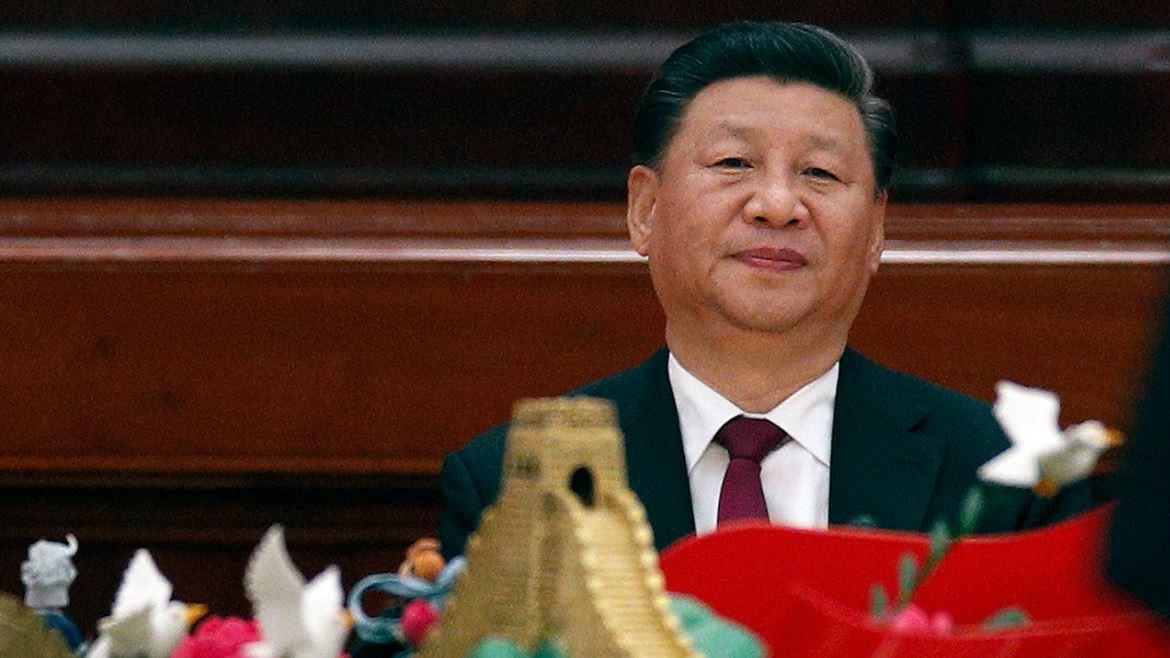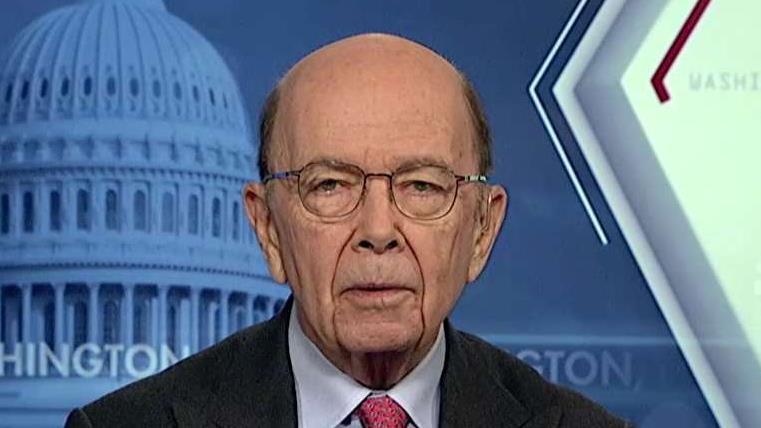Ward and Atkinson: Amid US-China trade battle, here is how America can remain the world's strongest economy
The American era can and must prevail
The Communist Party of China has laid plans for a century of unlimited Chinese power and, with it, the end of the American era. However, we still can — and must — bet big on the future of American economic power. The best antidote to China’s ambitions is to ensure America’s continued economic and technological preeminence.
Far too many strategists, investors and policymakers accept China’s economic preeminence as an inevitable outcome, given the country’s enormous population and potential for growth.
As the business community looks toward a “partial trade deal” to unwind tariffs and reduce trade hostility between the world’s two largest economies, we must understand that nonnegotiable problems in U.S.-China relations will accelerate if China closes the gap with the United States in terms of economic and technological power. With the right strategic mindset and a focus on domestic productivity, America can not only win the economic and technological contest but also turn the tide in the U.S.-China competition for global power.
US-CHINA TRADE DEAL HAS ‘VERY HIGH PROBABILITY’ OF HAPPENING: WILBUR ROSS
China’s bid for global power is built on its economic ascendency, which is based on engagement with the United States and our allies. Chinese companies are capturing global markets and climbing the ranks of the Fortune Global 500 by taking advantage of stolen or coerced foreign intellectual property and state-orchestrated market distortions. The Communist Party is converting China’s technological power into a dystopian surveillance state and a military that is focusing its capabilities on the United States and our partners.
Chairman Xi Jinping calls regularly for Chinese forces to “prepare to fight and win wars,” while converting civilian industrial technology into military power through “civil-military fusion.” Meanwhile, China’s current account surplus is employed for global influence, buying “strategic partners” with intercontinental projects like the “Belt and Road Initiative” and state-backed acquisitions of foreign firms.
TRUMP, FED’S POWELL SHARE REVOLUTION LOVE DESPITE ODDS OVER RATES
U.S.-China competition is likely to be the hardest geopolitical contest in generations — but it is a contest that the United States can win if we focus on the right objectives.
The People’s Republic of China is a challenge to America’s values and concept of world order. U.S.-China competition is likely to be the hardest geopolitical contest in generations — but it is a contest that the United States can win if we focus on the right objectives. So, where do we go from here?
Focus on GDP
The first step must be a focus on accelerating U.S. productivity growth. U.S. productivity growth need only increase from 1.3 percent a year to 2.5 percent for U.S. GDP to remain ahead of China’s for the entirety of the 2020s, the decade in which many expect China’s economy to surpass America’s.
GET FOX BUSINESS ON THE GO BY CLICKING HERE
By 2030, economic leadership will be easier to maintain as China’s demographic problems set in. Such a productivity increase is realistic, given that productivity growth from 1995 to 2008 was higher than 2.5 percent.
Protect America’s edge
The second step is to preserve our edge in advanced and emerging technologies. America must remain ahead of Communist China, not only in hard sciences, but also in the actual production of advanced goods and services.
DROEGEMEIER AND NEUMAYR: WHY TRUMP’S MAKING OCEAN EXPLORATION A TOP PRIORITY
If America competes against China only through soybean and oil production, we will fail to counter China in advanced industries such as robotics, semiconductors, aerospace and biopharmaceuticals. China is gaining in these and other technologies and industries and could eventually have a decisive advantage over the United States.
As Alexander Hamilton warned 200 years ago, America can’t be great if it is a “hewer of wood and drawer of water.” We must out-invent and outproduce China in advanced technology and industrial goods.
CLICK HERE TO READ MORE ON FOX BUSINESS
Maintaining U.S. advantage will require collaboration between government and corporations towards national goals in science, engineering and industry. This approach has long served our nation in times of international struggle and led to lasting commercial and national security breakthroughs.
New and big
In order to attain these goals, Washington must think new and big. New in the sense of a bipartisan consensus that productivity growth and technological competitiveness must be national priorities.
Big in the sense of big and bold proposals. Here are three: First, implement a robust research, development and investment tax credit that will stimulate innovation and investment on American soil. Second, establish a series of well-funded “moonshot” goals to ensure American leadership in emerging industries such as advanced robotics and quantum computing. Third, develop a national productivity strategy that will take the best ideas of government and industry and focus on building the next $10 trillion in annual U.S. GDP by 2030.
Half a century ago, under the leadership of President John F. Kennedy, America faced a Communist superpower that believed that it would “bury” the United States, much as Chinese Communist leaders today believe that the 21st century belongs to China. Kennedy reminded us then that America would “bear any burden” and “meet any hardship” to prevail in that consequential time.
In the end, it was the power of the American economy, the power of American technology, and the power of American industry that brought victory over our ambitious foe. We must unleash these forces once again, wrestle them into national service, and build on toward the greater good — an American era that can and must prevail.
Dr. Jonathan D.T. Ward is the author of "China’s Vision of Victory" and founder of Atlas Organization, a strategy consultancy on US-China global competition. Follow him on Twitter @jonathandtward.
Dr. Robert D. Atkinson is the president of the Information Technology and Innovation Foundation and the author of "Big is Beautiful: Debunking the Mythology of Small Business." Follow him on Twitter @robatkinsonITIF..





















